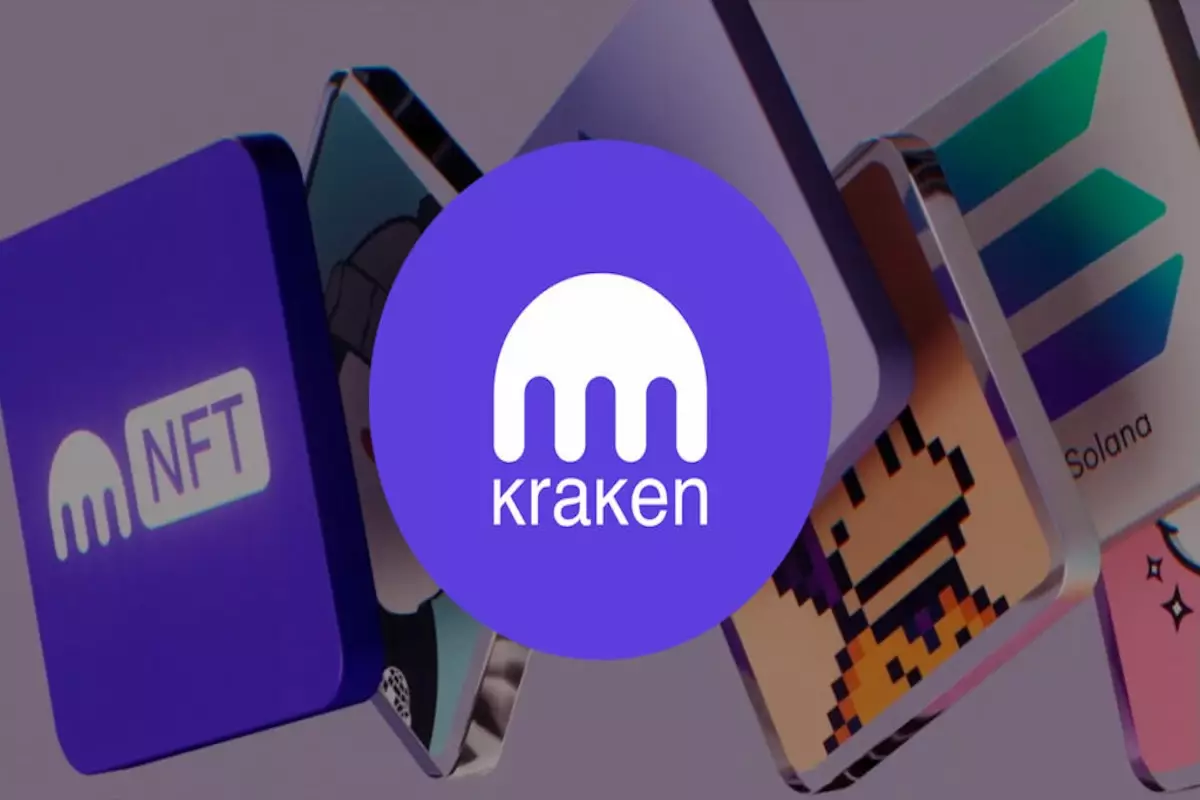In a notable development within the cryptocurrency landscape, Kraken, a leading player in the exchange market, has announced the closure of its NFT marketplace. This significant pivot marks a departure from the company’s original strategy and highlights a broader trend affecting the NFT ecosystem. Slated to end operations in three months, the marketplace has already entered a withdrawal phase as of November 27. Kraken’s decision is indicative of its need to adapt to shifting priorities within the cryptocurrency industry and a response to dwindling market activity within the NFT space.
Over the past year, the NFT market has encountered substantial challenges. Weekly trading volumes have plunged to less than $200 million since April 2024, suggesting a marked stagnation in an area once thought to be the future of digital ownership. Even though prominent projects like CryptoPunks continue to see activity, the sector as a whole has struggled to maintain momentum. This climate of retreat has compelled key players, such as Kraken, to reassess their involvement and resource allocation. By reallocating its efforts, Kraken aims to enhance its foundational products and position itself for future opportunities that align with its long-term aspirations, particularly with plans to launch its own blockchain by 2025.
The closure of Kraken’s NFT marketplace invites several considerations for collectors and users alike. As the market landscape shifts, collectors are advised to take proactive steps. First, it is essential for users to transfer their NFTs into safer environments, such as Kraken Wallet or a self-custodial wallet, ensuring their assets are secure during this transition period. Additionally, users may find themselves seeking alternatives on well-established platforms, including OpenSea and Rarible, both offering comprehensive NFT ecosystems for trading, buying, and selling.
The marketplace’s exit could act as a catalyst for innovation among competing platforms. New entrants may emerge, vying for users by presenting unique features and enhanced usability. As the competition heats up, a focus on security, trading ease, and user-friendly interfaces could define the next wave of NFT marketplaces. Collectors are encouraged to remain vigilant, checking for platform-specific requirements and ensuring they have up-to-date browsers for continued engagement in the NFT ecosystem.
Kraken’s withdrawal from the NFT market does not exist in a vacuum. This exit is part of a wider trend where multiple platforms are grappling with stagnant trading volumes and market saturation. Currently, OpenSea leads the way with its capability to support various blockchains and an extensive range of NFTs. However, this extensive scope has not shielded it from challenges posed by competition and declining trading activity. Rarible, with its decentralized governance model through the RARI token, offers an alternative for creators seeking autonomy over their assets. Despite these distinctions, Rarible remains susceptible to the broader market’s volatility.
For marketplaces to succeed in this evolving environment, they must embrace adaptability, striving to align with user expectations and emerging trends. Security remains paramount for users’ trust, and platforms should prioritize making trading seamless while providing unique offerings to differentiate themselves.
As Kraken shifts its focus towards blockchain development, it presents a glimpse into the future of the cryptocurrency sector, highlighting the necessity for platforms to pivot strategically in response to market realities. The NFT space stands at a crucial juncture as new challenges manifest. The next few years are set to be transformative for NFT marketplaces; competition will fuel innovation and influence the sector’s trajectory.
While Kraken’s departure from the NFT marketplace may signal an end to one chapter, it simultaneously opens new possibilities for growth and adaptation. The evolution in priorities among crypto platforms, as illustrated by Kraken’s decision, underscores an industry in flux. Collectors, creators, and platforms must remain agile and innovative to navigate these uncharted waters and thrive amidst change.


Leave a Reply